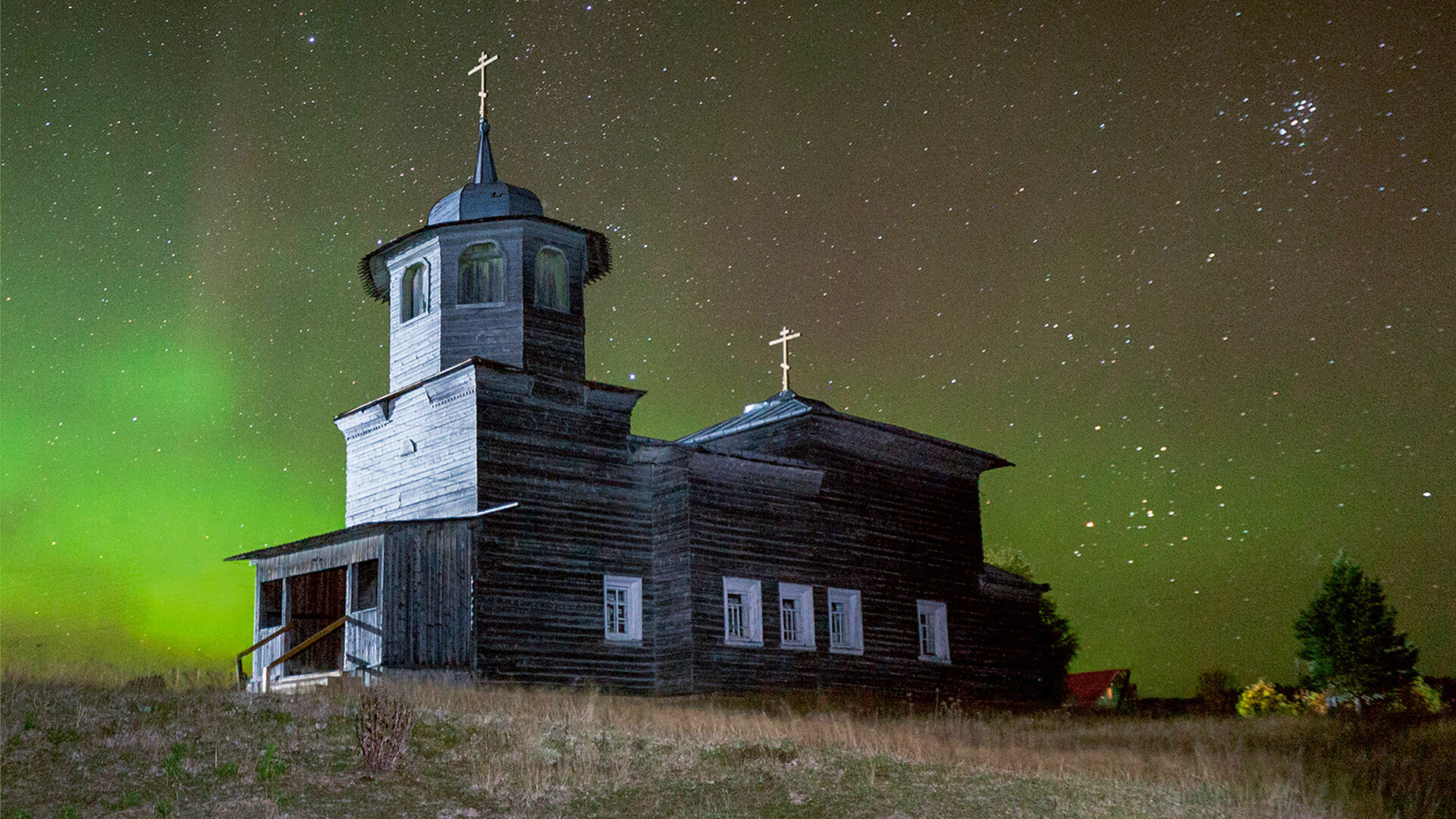
The Church of the Nativity of St. John the Baptist in the village of Palashcheliye, Arkhangelsk Region
Alexander Moiseyev/Eksmo, 2024Once, St. Petersburg photographer Alexander Moiseyev went on a little trip outside St. Petersburg to Leningrad Region. And, he was absolutely amazed to discover a wooden church that was older than St. Petersburg itself.
For over 10 years since then, he has been traveling to remote northern villages. Perhaps, it is because of their location that ancient wooden churches survived all the vicissitudes of the 20th century. In his book ‘Disappearing North: unadventurous stories from the life of the Russian countryside’ (Eksmo, 2024) Alexander tried to capture the vanishing beauty of these northern villages.
Most of the churches are located in the so-called 'Russian North', a special historical and cultural region of Russia. Usually, the north of the European part of Russia is called this way, including the Republic of Karelia, Arkhangelsk Region and the coasts of the White and Barents seas.
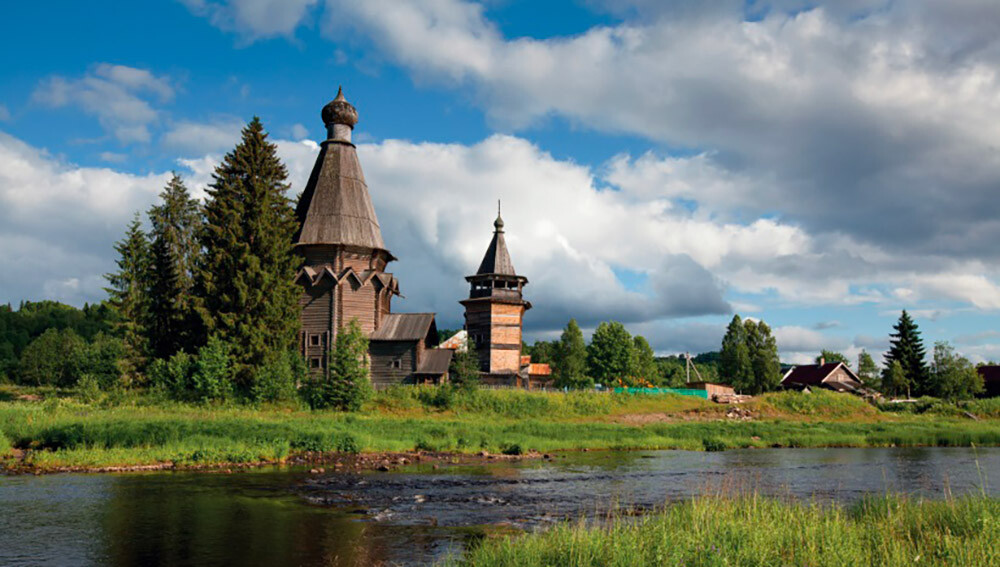
Winter view…

This temple on the bank of the Vazhynka River is hundreds of kilometers away from any big city. It was built in 1696, in a typical for the 'Russian North' architecture: a hipped church on an octagonal base and a separate bell tower.
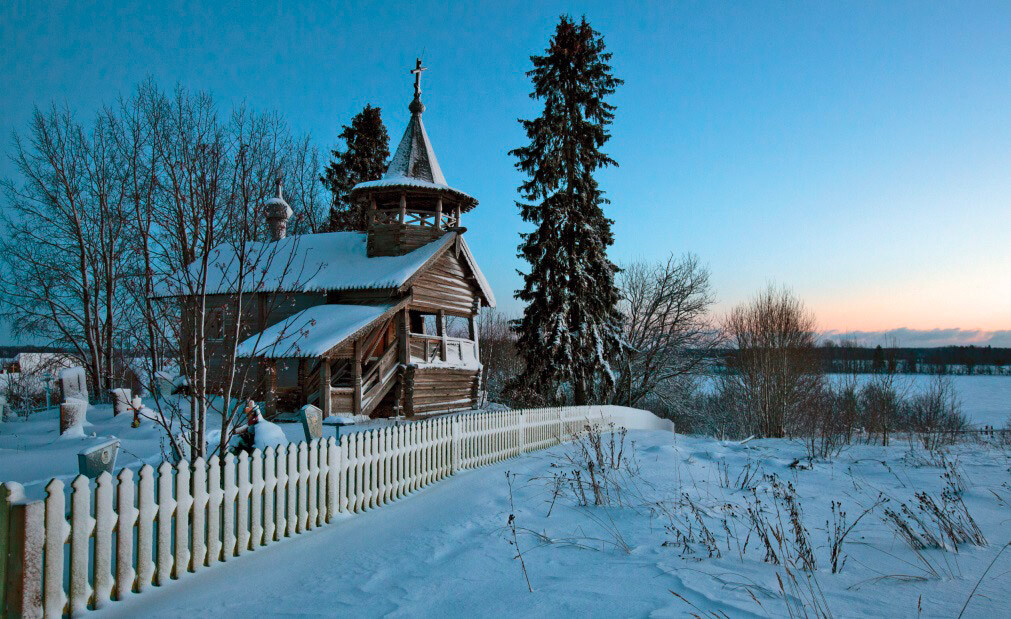
This place on the bank of Vachozero was famous among fishermen for a good bite to eat and it was there that a chapel in honor of Peter (the patron saint of fishermen) and Paul appeared.
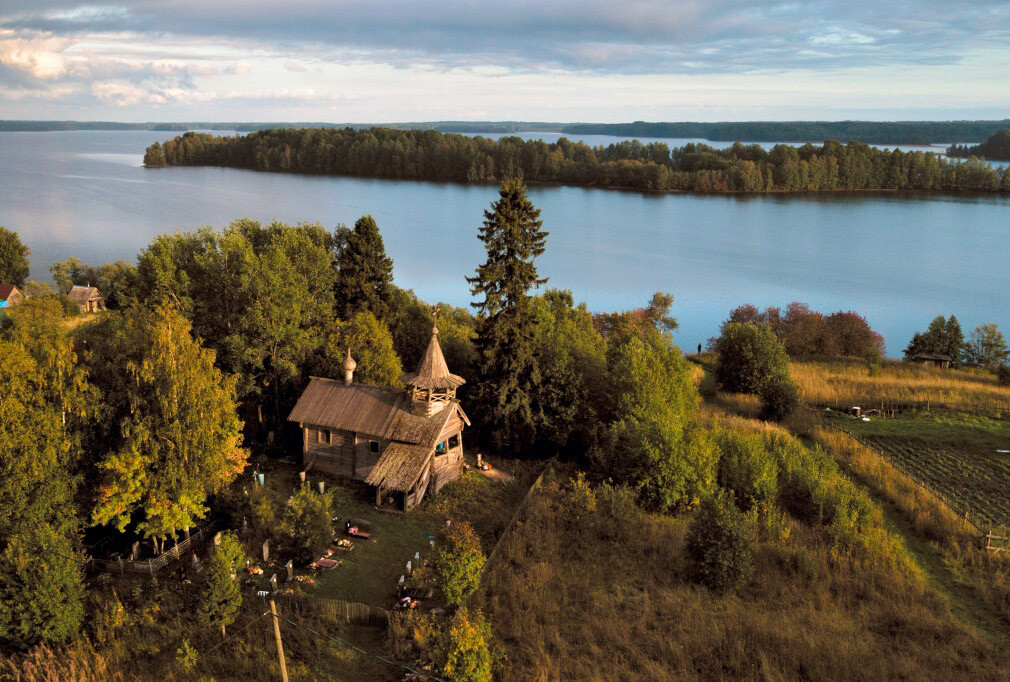
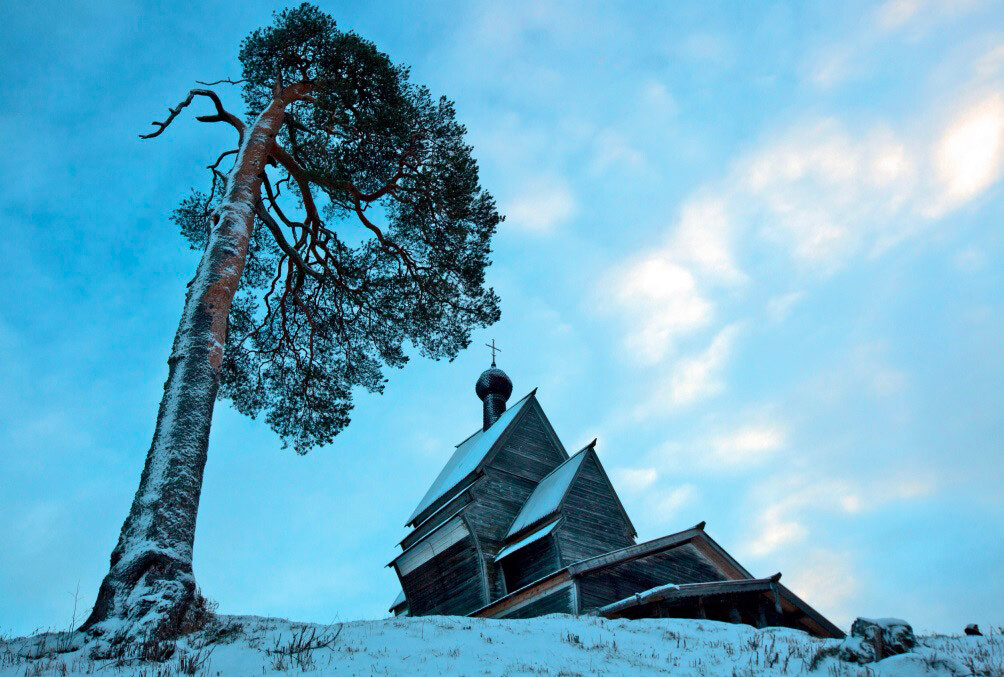
The church was built in 1493-1496. And it is considered to be the oldest church in Russia standing on its original site (The rest did not survive the test of time or were moved to open air museums of wooden architecture). The church even survived the occupation of Finnish troops in 1941-1944.
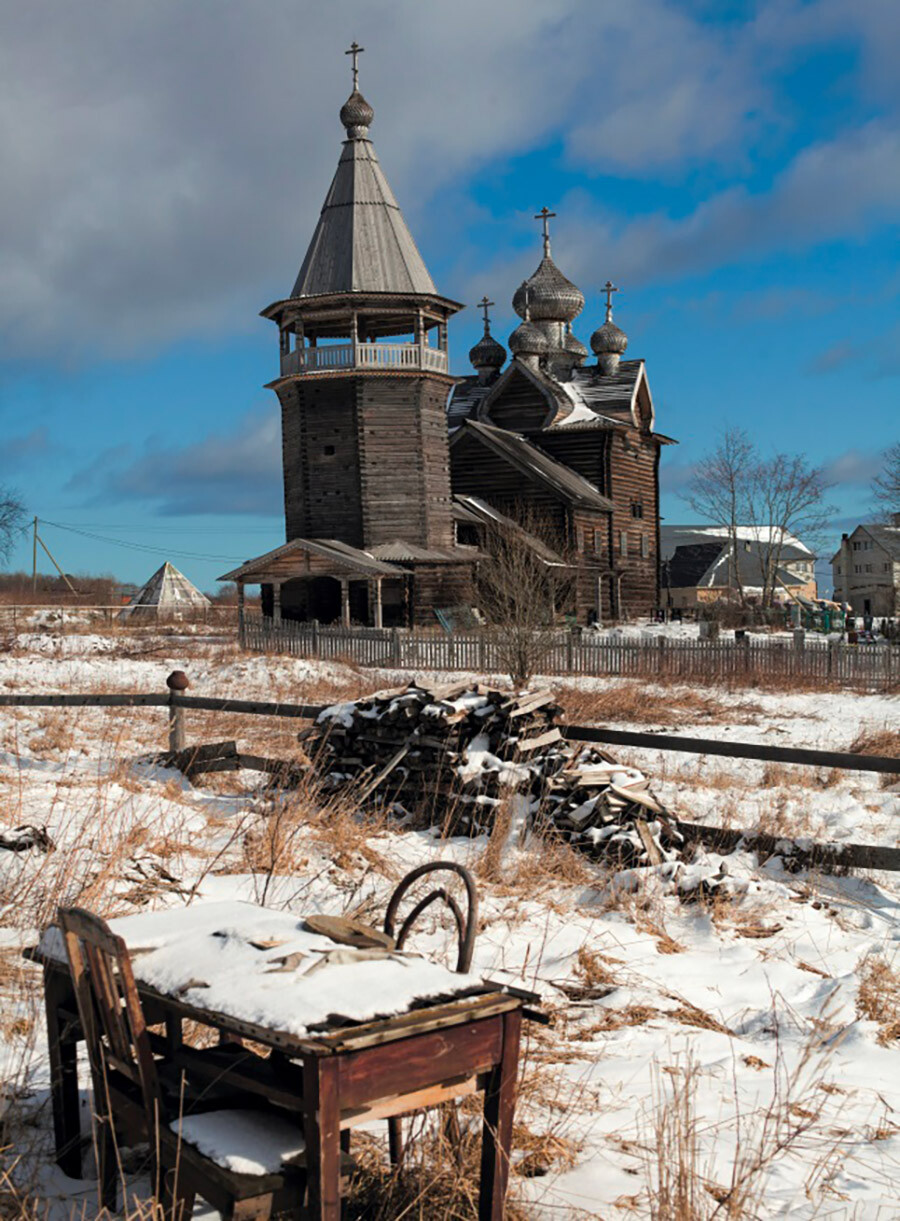
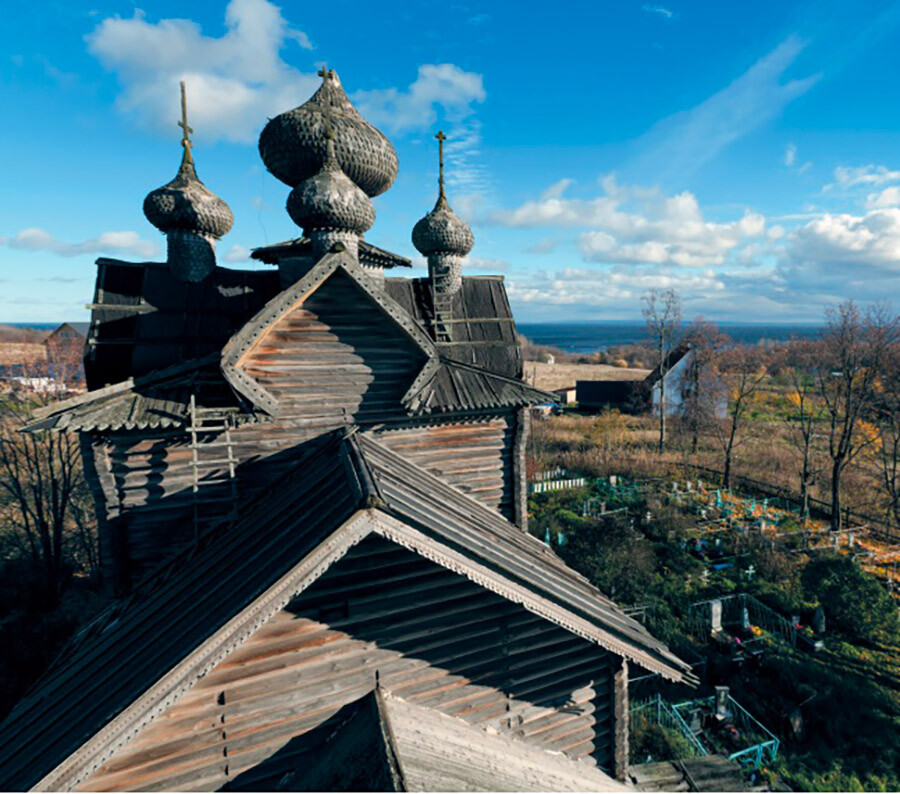
In the 1940s, there were more than 200 churches and chapels north and west of Lake Onega. Only about 30 have survived to this day. Many of them disappeared due to fires. St. Dmitry Church of the late 18th century in the village of Shcheleiki is one such rare example. It has recently also been completely restored.
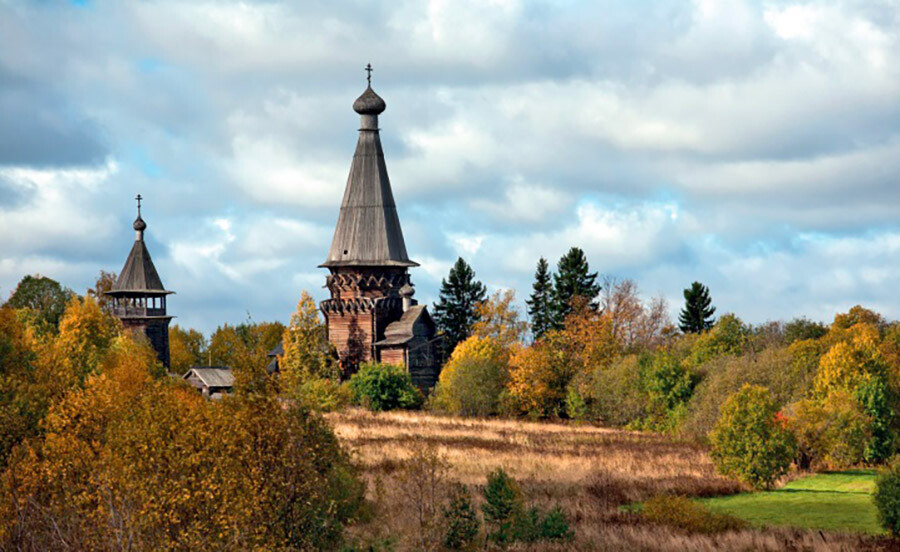
On the shores of Lake Onega, there is a whole scattering of beautiful ancient temples. The most famous ensemble is the Kizhi pogost on the Island of Kizhi.
But, there is also the lesser known Gimoretsky pogost in the village of Gimreki. Its Church of the Nativity of the Virgin was built in the second half of the 17th century.
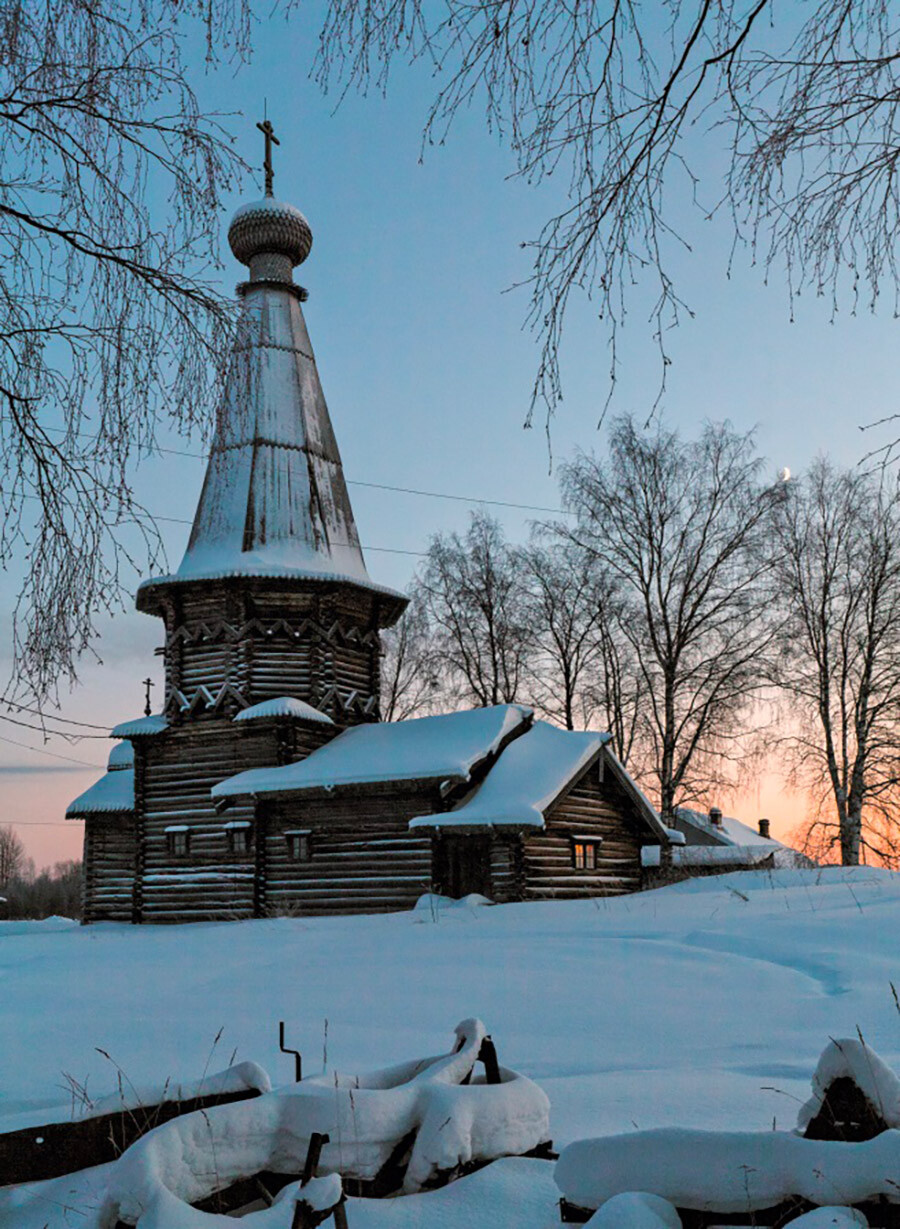
The temple dedicated to the Russian saint Alexander of Svir was built in the 1770s with the funds of a merchant from St. Petersburg. Initially, there was a complex of buildings: another church and a bell tower, but they burned down in 1942. Later, the Alexander church was used as a library and a club. During perestroika, it was restored, but religious services are no longer held there.
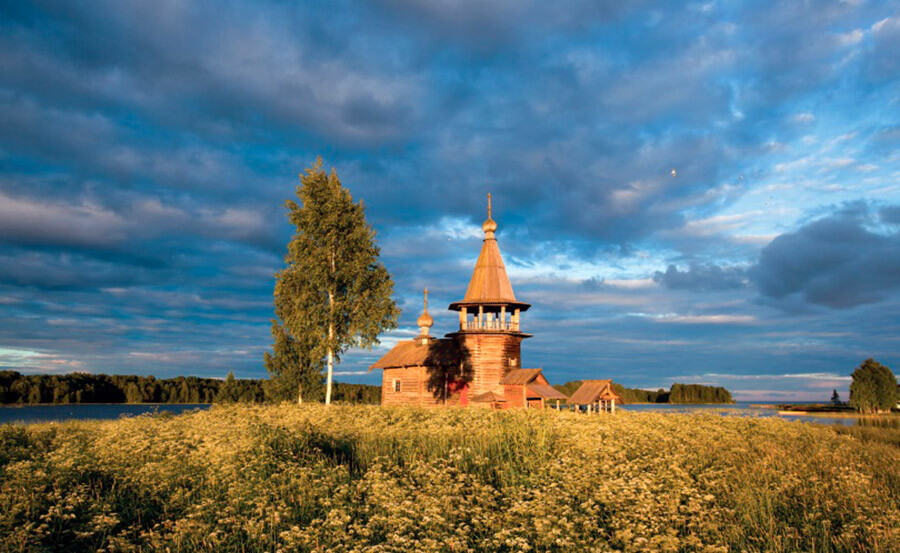
According to the author, this is one of the most beautiful chapels in the north of Lake Onega. It stands right on the shore, so if you climb the belfry, you can enjoy a picturesque view.
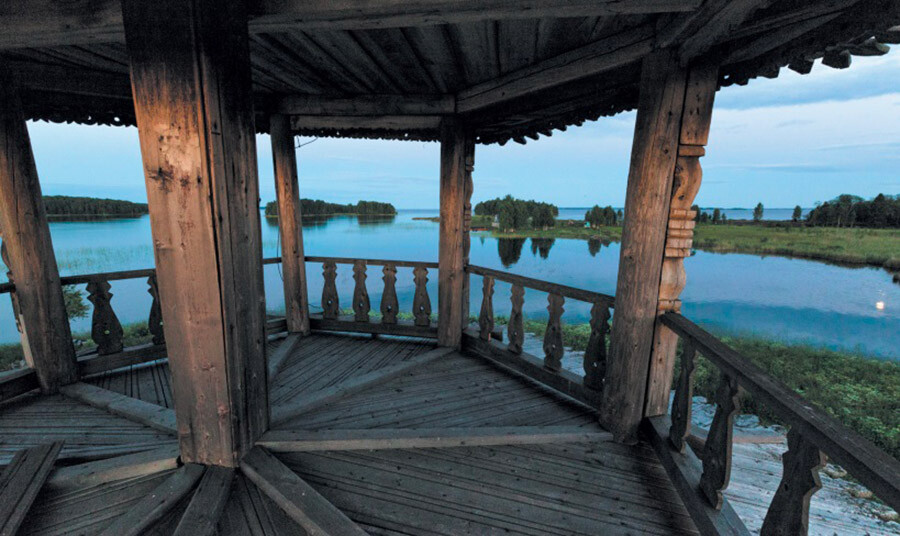
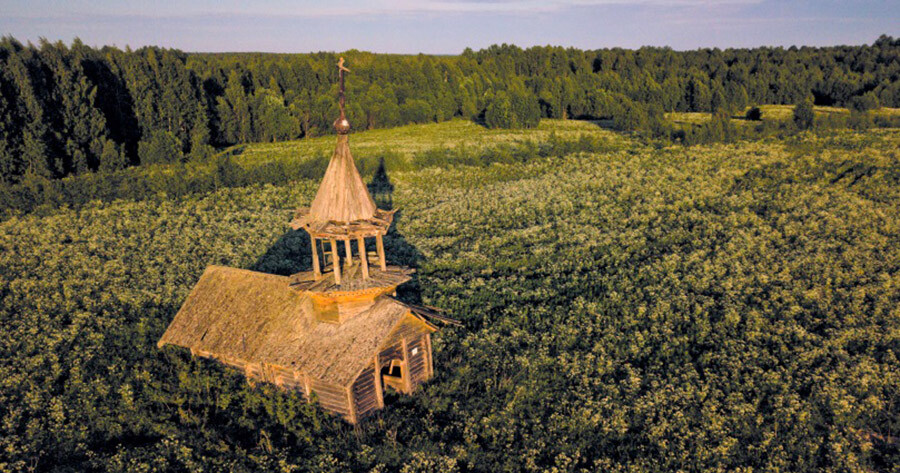
Today, this village is abandoned and the church stands in the middle of a forest and thickets. Once, there was a bustling life, but then many inhabitants left and even took their wooden log houses with them.
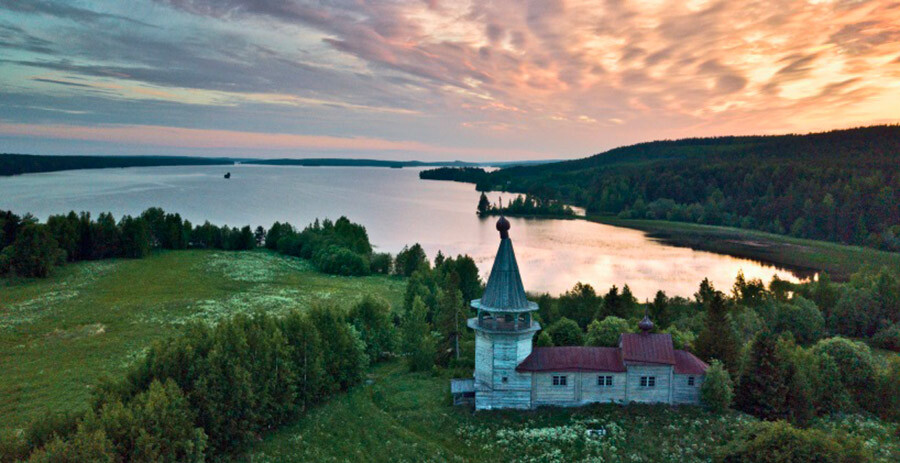
“From Kholmogory to Kola, there are thirty-three Nikolas,,the inhabitants of the Russian North used to say in the old days referring to the area from Arkhangelsk Region to the Kola Peninsula. There are a lot of churches dedicated to St. Nicholas in the North, as he is the most popular saint in Russia, the protector of travelers.
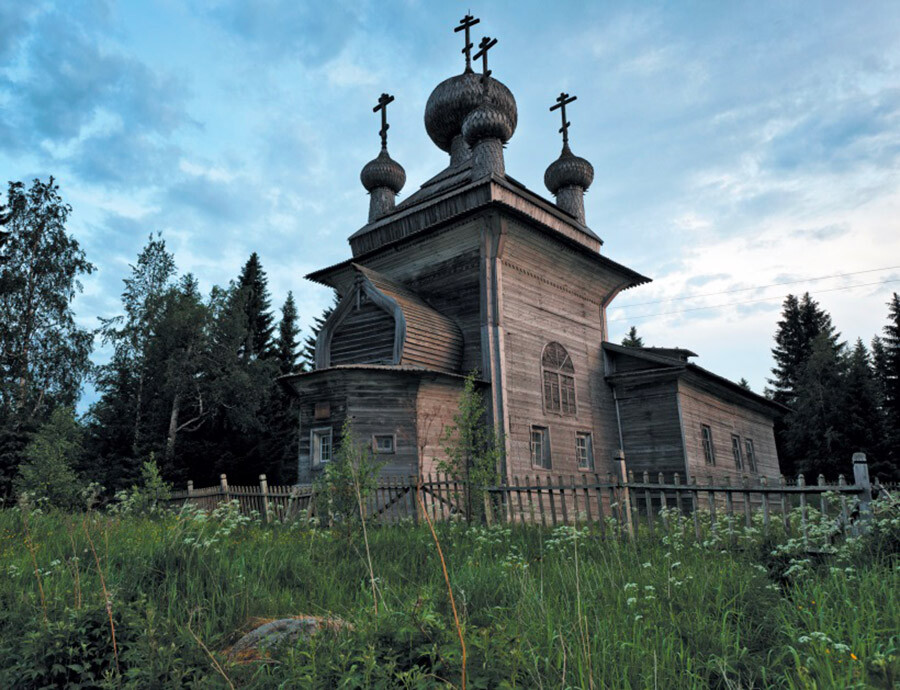
The ancient village of Virma stands on the river of the same name in swampy areas not far from the shore of the White Sea. The church appeared there in the 1630s, it was built with the funds of the mighty Solovetsky monastery, which is located nearby on the islands in the White Sea. Soviet authorities demolished the bell tower, but the church itself was fortunately preserved by the locals.
Dear readers,
Our website and social media accounts are under threat of being restricted or banned, due to the current circumstances. So, to keep up with our latest content, simply do the following:
If using any of Russia Beyond's content, partly or in full, always provide an active hyperlink to the original material.
Subscribe
to our newsletter!
Get the week's best stories straight to your inbox